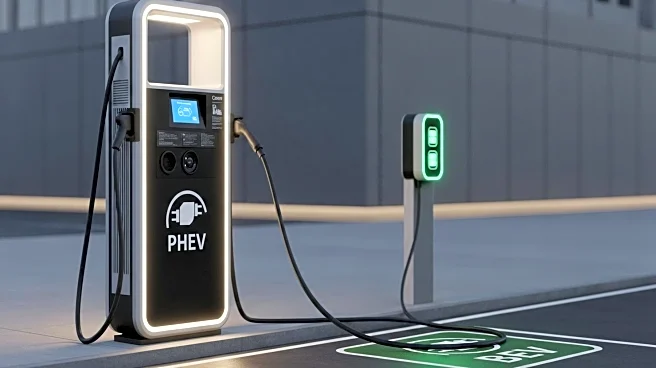What's Happening?
The usage of Plug-in Hybrid Electric Vehicles (PHEVs) is reflecting broader challenges in the adoption of Battery Electric Vehicles (BEVs). In many Western countries, the cost of gasoline is significantly higher than electricity, making home charging of EVs more economical. However, public charging markups can make running a car on electricity more expensive than gasoline. In countries like China and Norway, where gasoline costs are much higher relative to electricity, BEV adoption is thriving. The availability of affordable and capable PHEVs and BEVs remains limited in the West, with PHEVs often being more expensive than comparable Internal Combustion Engine (ICE) vehicles. Additionally, subsidy structures supporting petroleum consumption and inadequate charging infrastructure are hindering the transition to electric vehicles.
Why It's Important?
The transition to electric vehicles is crucial for reducing emissions and achieving sustainability goals. However, the challenges faced by PHEV users highlight the barriers to widespread BEV adoption. The cost differential between gasoline and electricity, along with the availability of charging infrastructure, plays a significant role in consumer decisions. Addressing these issues is essential for encouraging more people to switch to electric vehicles. Governments and industry stakeholders must focus on reducing electricity costs, expanding charging infrastructure, and revising subsidy structures to support electrification. These measures can accelerate the shift towards cleaner transportation and contribute to environmental and economic benefits.
Beyond the Headlines
The debate over PHEV and BEV adoption also touches on broader issues of energy policy and market dynamics. The reliance on fossil fuels and the subsidization of petroleum consumption have long-term implications for energy security and climate change. Encouraging the use of electric vehicles requires a comprehensive approach that includes policy reforms, technological advancements, and consumer education. The transition to electric vehicles is not just about reducing emissions; it involves reshaping transportation systems and energy markets to create a sustainable future.












